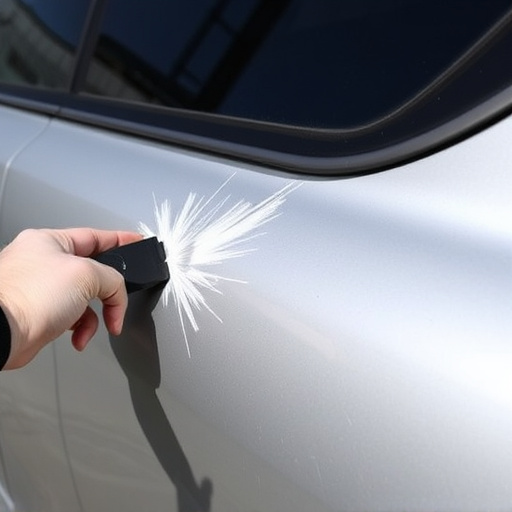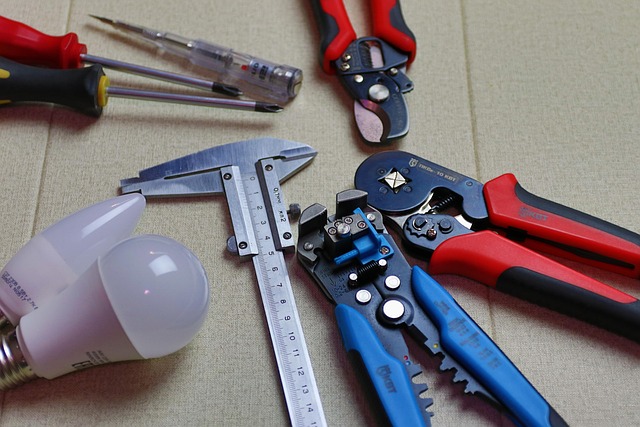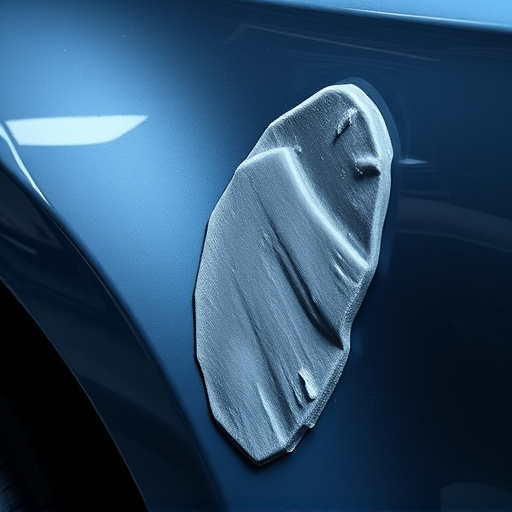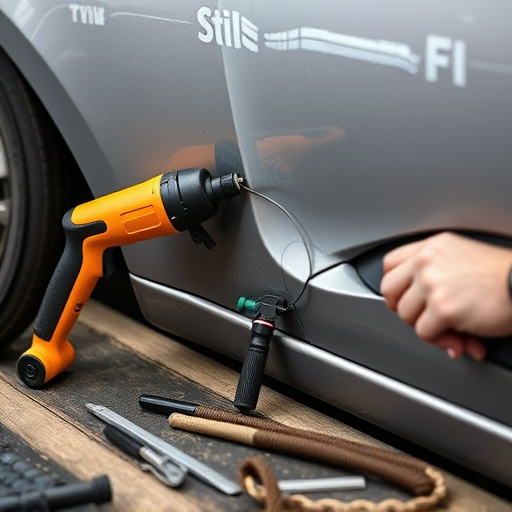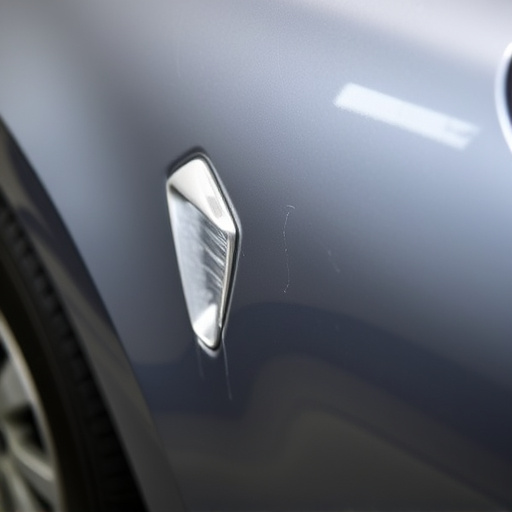Sustainable collision centers prioritize environmental protection through eco-friendly practices, including using water-based paints, recycling metal and plastics, and investing in energy-efficient equipment and renewable energy sources. They minimize waste, reduce VOC emissions, and responsibly dispose of hazardous substances, contributing to improved local air and water quality. These centers employ advanced green technology for dent removal, vehicle restoration, and painting, setting industry standards for environmental stewardship.
A sustainable collision center isn’t just about fixing cars; it’s a beacon of environmental stewardship, enhancing air and water quality through innovative practices. This comprehensive guide explores how eco-friendly approaches in collision repair, coupled with efficient waste management and cutting-edge green technology, are transforming the industry. Discover how these strategies not only benefit the environment but also contribute to healthier communities and a greener future.
- Eco-Friendly Practices in Collision Repair
- Efficient Waste Management Strategies
- Green Technology for Clean Air and Water
Eco-Friendly Practices in Collision Repair

At a sustainable collision center, eco-friendly practices are integrated into every aspect of automotive collision repair. Instead of relying on harsh chemicals and toxic materials, these centers utilize green alternatives for painting, cleaning, and waste management. For instance, water-based paints reduce the release of volatile organic compounds (VOCs), which contribute to air pollution. Moreover, recycling and reusing materials, such as metal parts and plastics from damaged vehicles, significantly diminishes the environmental footprint of car dent repair and car scratch repair processes.
The adoption of sustainable practices extends beyond just the repair process. Sustainable collision centers often invest in energy-efficient equipment and renewable energy sources to power their operations. They might also implement water conservation measures, like using reclaimed water for certain cleaning procedures. These efforts not only enhance air and water quality but also promote a circular economy, where resources are conserved and reused, making them ideal models for modern, eco-conscious car repair industries.
Efficient Waste Management Strategies

A sustainable collision center stands out for its efficient waste management strategies, which play a vital role in enhancing local air and water quality. These centers go beyond conventional practices by implementing comprehensive recycling programs and utilizing eco-friendly materials wherever possible. For instance, instead of discarding damaged cars, the facility can employ innovative vehicle body repair techniques like paintless dent repair to restore them to their original condition. This reduces the need for extensive painting processes that often release harmful chemicals into the atmosphere.
Moreover, sustainable collision centers prioritize responsible disposal of hazardous substances such as old fluids and electronic waste. They invest in state-of-the-art filtration systems and containment areas to capture and recycle these materials effectively. By adopting such practices, auto repair services at these centers contribute significantly to a greener environment, ensuring that air and water quality remain pristine for the surrounding communities.
Green Technology for Clean Air and Water

A sustainable collision center goes beyond traditional auto repair by integrating green technology to significantly enhance air and water quality. These centers utilize advanced techniques for dent removal and vehicle restoration, often employing eco-friendly materials and processes that minimize the release of harmful pollutants into the atmosphere. For instance, modern equipment used in auto painting is designed with environmental considerations in mind, using less toxic paints and solvents while ensuring high-quality finishes.
Moreover, sustainable collision centers often incorporate innovative water recycling systems for various processes, including cleaning and cooling. By reusing and treating water, these facilities reduce their freshwater consumption and minimize the discharge of contaminated water into local ecosystems. This holistic approach not only contributes to a cleaner environment but also positions these centers as leaders in the industry, promoting a greener future for auto repair and vehicle restoration services.
A sustainable collision center isn’t just about fixing cars; it’s about fostering a greener future. By adopting eco-friendly practices, efficient waste management strategies, and leveraging green technology, these centers significantly enhance air and water quality. These efforts not only benefit the environment but also contribute to a healthier, more sustainable community for all.



